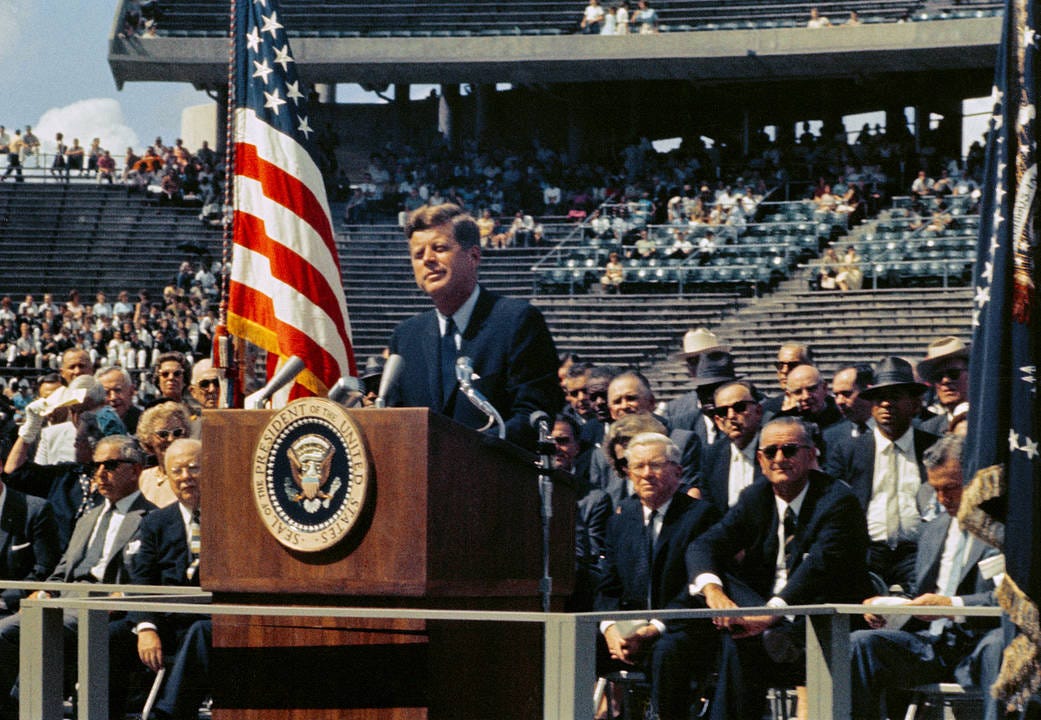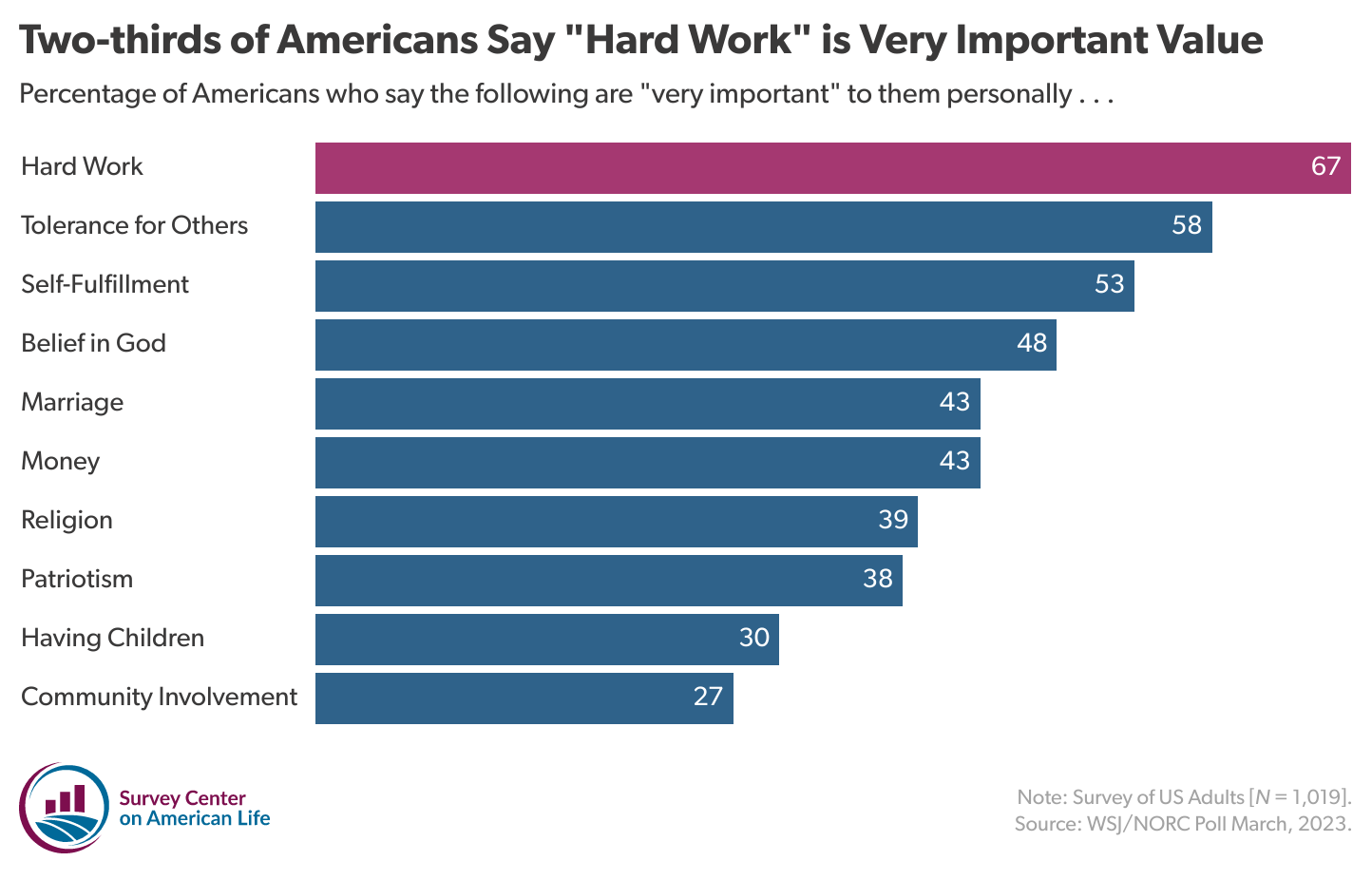Commentary April 11, 2023
American Politics Needs a New National Purpose

The United States seems to have lost its way as a country. Americans have generally low regard for our political leaders, little faith in our institutions, and even less in each other. Our politics are defined by acrimony and division.
We’ve witnessed a decades-long deterioration in civic life and social solidarity. The erosion of traditional hierarchies and established cultural norms—and uncertainty about what ought to replace them—has led to feelings of insecurity and instability. A largely white, Christian majority has given way to growing religious and ethnic diversity that includes an increase in Americans with no religious belief in particular or at all.
There are many Americans working to bridge these differences and repair the shredded social fabric in the process. Organizations such as Braver Angels, Resetting the Table, and the Better Arguments Project seek to reduce political polarization and cultural conflict through dialogue and debate. The Aspen Institute sponsors workshops to spur interfaith dialogue. While critical, these efforts are not enough.
Social contact is a prerequisite for reducing prejudice, but these conversations are only the first step in breaking down barriers. The late psychologist Gordon Allport argued that interpersonal contact can mitigate feelings of prejudice and intergroup animosity, but only under certain conditions. Central to Allport’s theory was the pursuit of a shared, collective goal. To overcome prejudice, it’s not enough for Americans to share the same physical space—they must be working towards a common end, a shared purpose. It’s a lesson we seem to have forgotten.
In his inaugural address, John F. Kennedy famously sought to encourage national unity: “Ask not what your country can do for you—ask what you can do for your country.” But Kennedy was not attempting to appeal to American charity or selflessness, he was calling on the nation to take on extraordinary challenges to combat “tyranny, poverty, disease, and war itself.”
In setting the remarkably ambitious goal of reaching the Moon before the end of the 1960s, Kennedy focused America’s attention outward—to the stars and beyond. With the Peace Corps, Kennedy directed American interests and ideals abroad. His signing statement on the law that established the Peace Corps recognized the collective efforts required to achieve this ambitious goal: “Universities, voluntary agencies, labor unions, and industry will be asked to share in this effort—contributing diverse sources of energy and imagination—making it clear that the responsibility for peace is the responsibility of our entire society.”
Americans have always rallied around their leaders in the face of external threats. But we don’t have to fight wars or suffer tragedies to achieve this effect. Rather, our leaders need to clearly articulate a shared national purpose.
On the left and the right, there is renewed interest in developing an abundance agenda. We should aim to transform our national energy infrastructure to power our future, build enough new housing to fix our supply-constrained cities or develop and deploy modern transportation technologies such as high-speed rail and supersonic air transport to better connect communities. We should focus our attention on the cosmos—to establish an enduring human presence on the Moon, explore Mars and the rest of the solar system, and continue the search for life beyond. We should redouble our international commitments and recommit to our alliances in an increasingly perilous world.
There’s little doubt that Americans would be up to the task. Indeed, despite claims that Americans no longer want to work, the American work ethic is alive and well. On average, Americans work longer hours than those in other developed countries and take less time off. A recent Wall Street Journal poll that otherwise showed a decline in traditional values found that 67 percent of Americans consider “hard work” to be a very important personal value. In fact, hard work ranked higher than any other value or virtue the WSJ poll asked about, with nearly all Americans saying it’s at least somewhat important.

America has always been a country that wants to build and create, innovate, and expand. Even after Congress allocated tens of billions of dollars for infrastructure projects most Americans believe there is more work to do. An AP/NORC poll found that more than six in ten Americans believe we are spending “too little” on infrastructure.
We’re never going to resolve our differences through deliberation and debate alone, nor should this be our ultimate goal. National unity is not built on compromise or conciliation, but ambition. When we set our sights on achieving seemingly impossible goals, our differences become less relevant. They are not erased or ignored, rather they simply become less important in pursuit of a common project. Americans will never regain their sense of solidarity without a shared sense of purpose.
It’s no coincidence that America’s enemies have tried to refocus our attention on internal divisions and demographic differences. When we focus inward, America is weaker in the world and unable to stand for the values that represent it at its best. Instead of arguing over what we have and who we are in increasingly narrow terms, American politics should expand the horizon of what is possible. There are plenty of challenges worthy of our attention—from climate change to space exploration—and we should seek them out.
Our willingness to engage our collective industry and ambition, more than anything, is what should define us.
Read the Original Post on The Liberal Patriot








